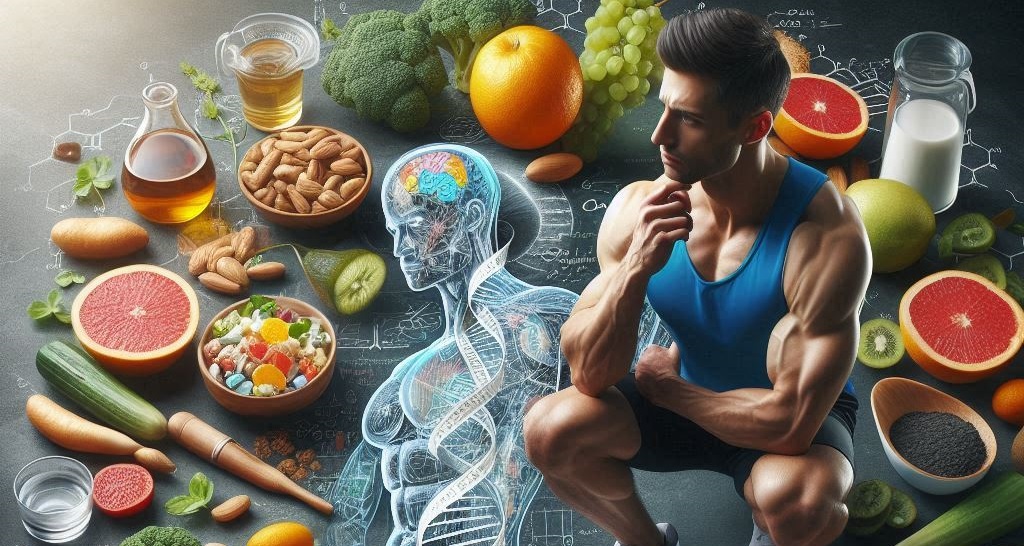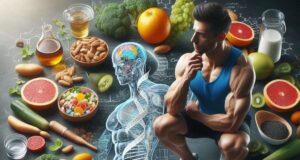When it comes to achieving fitness goals, nutrition plays a pivotal role. Whether you’re aiming to build muscle, lose weight, improve endurance, or simply maintain overall health, what you eat can make or break your progress.
Exercise is essential, but it’s only part of the equation. A balanced diet that complements your physical activity is key to fueling performance, enhancing recovery, and achieving lasting results.
This article will explore the role of nutrition in fitness and provide practical strategies for creating a balanced diet to support your active lifestyle.
Read More: Five Essential Cybersecurity Tips Every Small Business Should Follow
The Connection Between Nutrition and Fitness
Nutrition and fitness are closely intertwined. Exercise creates an increased demand for energy and nutrients, and your body needs the right kind of fuel to perform optimally. Here’s how nutrition affects different aspects of fitness:
- Energy for Exercise: Carbohydrates, fats, and proteins provide energy. Carbs are the body’s primary source of fuel during high-intensity activities, while fats serve as a key energy source during lower-intensity exercises.
- Muscle Recovery and Growth: Protein is crucial for repairing and building muscle tissue, especially after strength training or endurance exercise.
- Weight Management: Whether your goal is to lose fat or gain muscle, managing your caloric intake in relation to your activity level is fundamental.
- Overall Health: Vitamins, minerals, and antioxidants from nutrient-dense foods help reduce inflammation, boost immunity, and support recovery.
Key Macronutrients and Their Role in Fitness
A well-balanced diet includes the right proportions of macronutrients—carbohydrates, proteins, and fats—each serving a unique purpose in supporting an active lifestyle.
1. Carbohydrates: Your Body’s Primary Energy Source
Carbohydrates provide the energy required for physical activities. When consumed, carbs are broken down into glucose, which fuels your muscles during workouts. For those involved in high-intensity or endurance activities like running or cycling, carbs are crucial for sustaining energy levels.
- Types of Carbohydrates: Focus on complex carbs such as whole grains, sweet potatoes, and legumes rather than refined sugars and processed foods.
- Timing: Pre-workout meals rich in complex carbs can provide sustained energy, while post-workout carbs help replenish glycogen stores.
2. Proteins: Building and Repairing Muscle
Protein is essential for muscle recovery and growth, especially after strength training. It helps repair the small tears in muscle fibers that occur during exercise, leading to stronger and bigger muscles over time.
- Sources of Protein: Incorporate lean meats like chicken, turkey, and fish, as well as plant-based options such as beans, lentils, tofu, and quinoa.
- How Much Protein?: Aim for about 1.2 to 2.2 grams of protein per kilogram of body weight, depending on your fitness goals and activity level.
- Timing: Consuming protein-rich meals or snacks within 30-60 minutes post-workout can enhance muscle repair and recovery.
3. Fats: The Unsung Hero of Endurance
Fats are often misunderstood in the fitness world, but they play an important role in supporting long-term endurance and overall health. They provide a concentrated source of energy for lower-intensity activities and are essential for hormone regulation and nutrient absorption.
- Healthy Fat Sources: Avocados, nuts, seeds, olive oil, and fatty fish like salmon provide heart-healthy fats that support both performance and recovery.
- Avoid: Trans fats and overly processed fatty foods, as they contribute to inflammation and can negatively affect your health.
Micronutrients: Small But Mighty
In addition to macronutrients, micronutrients like vitamins and minerals play an essential role in maintaining energy, performance, and recovery. For active individuals, the following nutrients are particularly important:
- Iron: Supports oxygen transport in the blood, essential for endurance. Found in red meat, spinach, and fortified cereals.
- Calcium: Strengthens bones and is vital for muscle function. Found in dairy products, leafy greens, and fortified plant milks.
- Magnesium: Helps with muscle relaxation and recovery. Found in nuts, seeds, and whole grains.
- Vitamin D: Supports bone health and immune function, crucial for active individuals. Found in fatty fish and fortified products, and produced by the skin in sunlight.
Hydration: The Often Overlooked Essential
Proper hydration is critical for optimal physical performance. Dehydration can lead to muscle cramps, fatigue, and reduced endurance, impairing your ability to exercise effectively. To avoid this, stay hydrated throughout the day and pay attention to your fluid intake around workouts.
- Before Exercise: Drink 16-20 ounces of water about 2 hours before exercising.
- During Exercise: Sip water or an electrolyte drink, especially if the workout lasts longer than an hour.
- After Exercise: Rehydrate with water and consider drinks with electrolytes if you’ve sweated heavily or exercised intensely.
Creating a Balanced Diet for an Active Lifestyle
To build a diet that supports your fitness goals, it’s important to prioritize balance, quality, and timing of meals. Here are some practical strategies to help:
1. Prioritize Whole Foods Over Processed Options
Whole foods, such as fruits, vegetables, lean proteins, whole grains, and healthy fats, provide more nutrients and fewer additives compared to processed options. They also tend to keep you fuller for longer, helping you maintain energy levels throughout the day.
- Example: Instead of reaching for a sugary granola bar, opt for a handful of almonds and a piece of fruit for a quick, nutrient-dense snack.
2. Plan Your Meals Around Your Workouts
Tailor your meals to support your exercise routine. Focus on consuming carbs and proteins before and after workouts to fuel performance and promote recovery.
- Pre-Workout: Oatmeal with a banana or whole wheat toast with peanut butter are excellent options.
- Post-Workout: Grilled chicken with quinoa and roasted vegetables provides a balanced mix of protein, carbs, and fats.
3. Don’t Skip Meals or Restrict Calories Excessively
While it may seem tempting to skip meals or cut calories drastically to achieve weight loss goals, doing so can lead to muscle loss, decreased energy levels, and poor performance in workouts. Instead, focus on consuming nutrient-dense foods in appropriate portions to maintain a healthy metabolism and energy balance.
4. Embrace Flexibility in Your Diet
Rather than following a rigid or restrictive diet plan, aim for flexibility. This allows you to enjoy occasional indulgences without feeling guilty or derailing your progress. Balance is key, and an occasional treat won’t set you back if your overall diet is nutrient-dense and aligned with your fitness goals.
Conclusion
Nutrition is the foundation of any successful fitness plan. By focusing on a balanced intake of carbohydrates, proteins, fats, and essential micronutrients, you can fuel your body for optimal performance, faster recovery, and overall health.
Pairing proper nutrition with exercise creates a synergistic effect that will help you reach your fitness goals more efficiently. Keep in mind that a healthy diet is not about short-term restriction but about long-term habits that support an active lifestyle.
With these strategies, you’ll be well on your way to creating a sustainable eating plan that complements your fitness journey.








